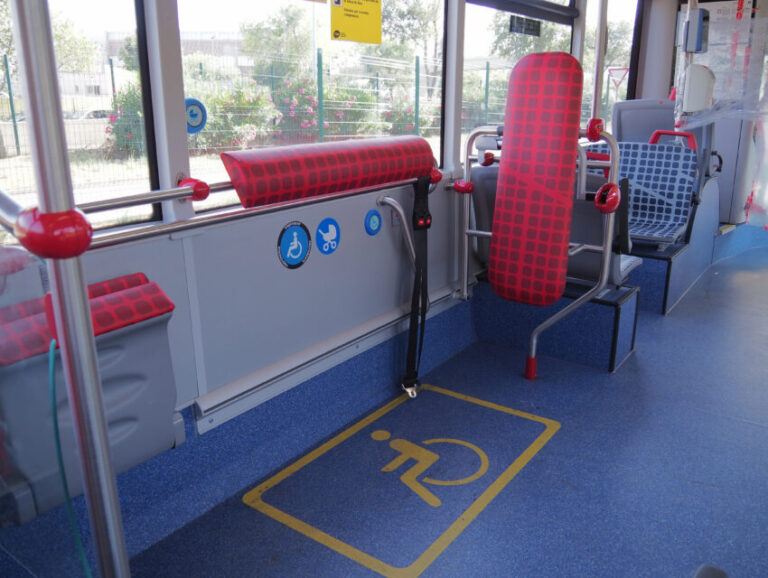[ad_1]
The founder behind an app that helps disabled people get better access to public transport has spoken out against the “harmful myths” that he believes are still prevalent in UK society.
Jay Shen, managing director of Transreport, the company behind the Passenger Assistance app, believes more needs to be done to improve public understanding of the accessibility challenges disabled people face.
The Passenger Assistance app was created to help disabled people book assistance for their journeys. The app helps thousands of disabled people arrange assistance, such as getting ramps for getting onto trains and personal assistance at stations, and the research was conducted to explore invisible barriers to accessibility, including perceptions of accessibility.
The team co-ordinated a series of focus groups with disabled public transport users as well as a data study that examined Google search data, to learn more about perceptions of accessibility for disabled people.
The data research revealed a number of unusual misconceptions about disabled that Shen is keen to counteract, they included.
‘Can guide dogs be black?’
‘Can disabled people vote?’
‘Can disabled people drive?’
‘Do wheelchairs float’
‘Why are disabled toilets locked?’
‘How do disabled people drive?’
‘Can disabled people park in parent and child spaces?’
‘Why are disabled toilets blue?’
The research also revealed a number of myths that are still commonly believed. For example:
‘People are ‘registered as disabled’
‘Being disabled is a permanent state that can be proven’
‘Some toilets are for wheelchairs only’
“It’s a harmful myth that people can and or need to be ‘registered disabled’, says Shen.
“There’s no such thing and it’s frustrating to see that even some local authorities use this term. It leads to confusion as well as disabled people being wrongly challenged when using accessible toilets or having radar keys.”
He added: “You can learn a lot about public perceptions by analysing the questions people ask and the topics they research online. Our research suggests that overall, people are keen to understand about the experiences of disabled people. But some of the search terms pointed to profound misunderstandings.”
Accessibility expert and campaigner Sarah Rennie uses a wheelchair is a regular public transport traveller. She believes the lack of understanding isn’t necessarily malicious, but it does point to a need for more awareness about the everyday lives and challengers that disabled people face.
Sarah said: “It does raise a smile when you see that people are ‘Googling’ whether guide dogs can be black or whether wheelchairs can float, but misplaced confidence in one’s knowledge can lead to serious consequences.
“A friend of mine who is blind was recently turned away from a venue because the staff didn’t believe her black Labrador was a real guide dog. They assumed only golden retrievers are legitimate assistance dogs. Humiliating and confrontational incidents like this have a huge impact on disabled people’s confidence.”
Sarah added: “It’s positive that people are doing their own research. While some disabled people may be open to answering questions that are based on a genuine desire to understand our experiences better, it’s important to remember that it’s not usually appropriate to ask personal questions, particularly to total strangers. And it really isn’t down to disabled people to educate non-disabled people about the things that affect our daily lives, especially when it comes to our legal rights. In business, it’s an employer’s responsibility to ensure all staff, particularly in customer-facing roles, are trained and understand the Equality Act.”
The data analysed by Transreport appeared to demonstrate a conflation between disability and the use of a wheelchair. Most disabled people do not use a wheelchair, and this is one of the biggest sources of friction and prejudice for people with hidden impairments.
Some focus group participants reported that they’d been challenged to prove their impairment by providing documentation. The most common scenarios where this happened were when they tried to use accessible facilities or get assistance at a venue. Others expressed concern that people who have invisible impairments often face abuse and get publicly challenged when using accessible toilets or sitting in priority seats on public transport.
“It really isn’t down to disabled people to educate non-disabled people about the things that affect our daily lives, especially when it comes to our legal rights.” – Sarah Rennie, campaigner and accessibility expert.
[ad_2]
Source link























0 Comments